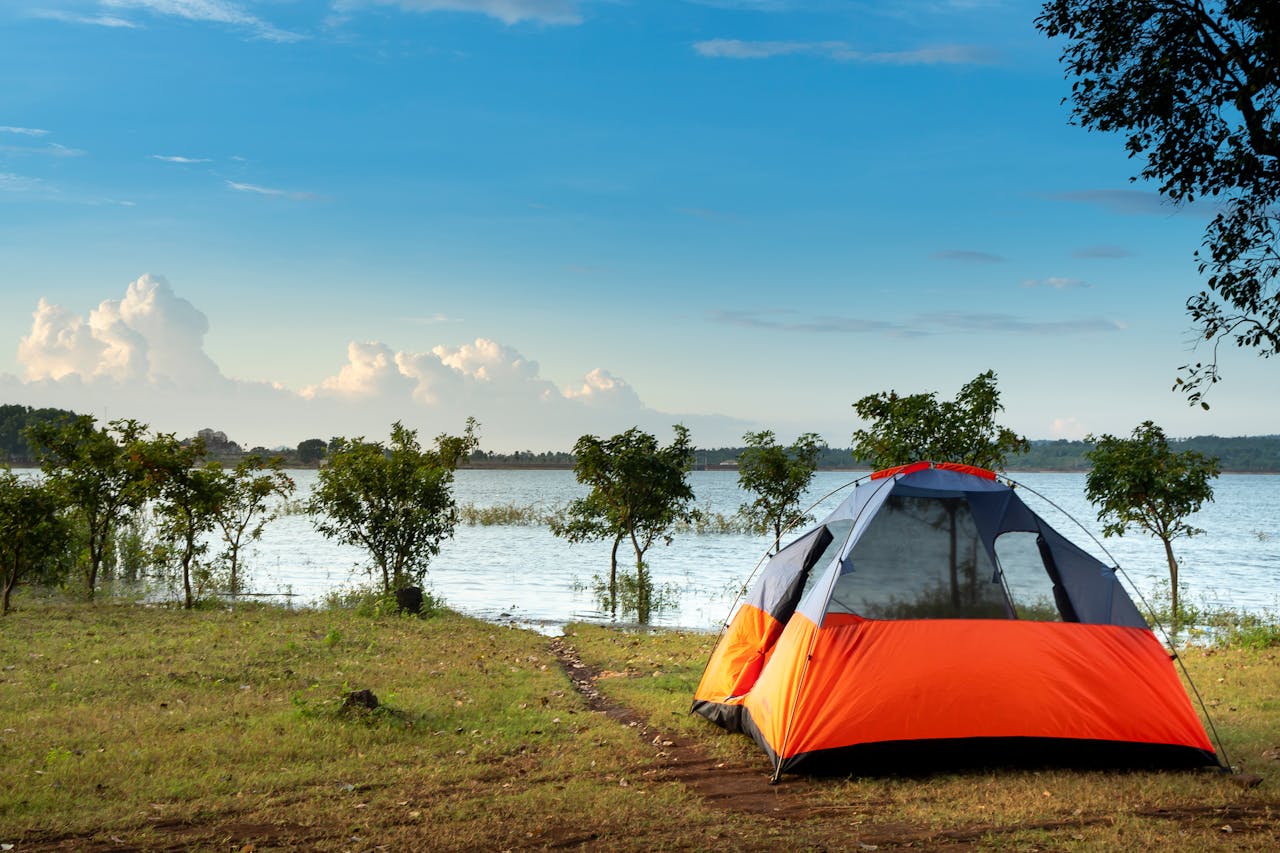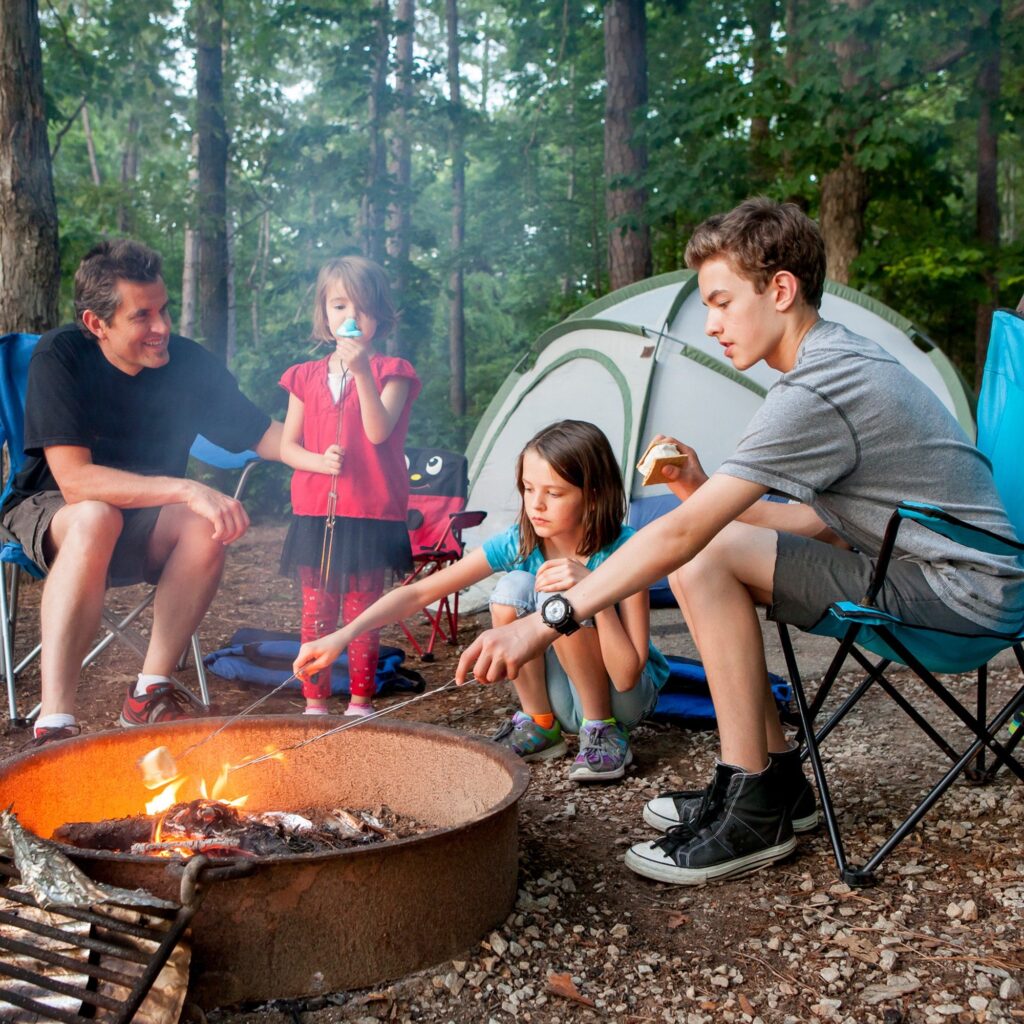
Camping Safety: 10 Tips for a Safe and Fun Adventure
Safety is key when you decide to camp outdoors. While enjoying nature and disconnecting from the daily routine are great reasons to go camping, it’s important not to forget that unforeseen events can occur at any time. Being prepared and following some basic tips can make the difference between an unforgettable experience and one filled with inconveniences. It’s important to know which personal items to bring, as well as the general items for your comfort.
In this article, we share 10 practical tips to keep you safe during your next camping adventure. From selecting the right site to protecting yourself against insects and carrying a first aid kit, these recommendations will allow you to enjoy nature to the fullest while minimizing risks and ensuring a safe environment for you and your companions.
Whether you’re an experienced camper or planning your first outing, these tips will provide you with the necessary tools for a fun and safe experience. Remember that balancing fun with precaution is essential to enjoying an outdoor adventure without worries. Prepare for an unforgettable experience by following these camping safety tips!
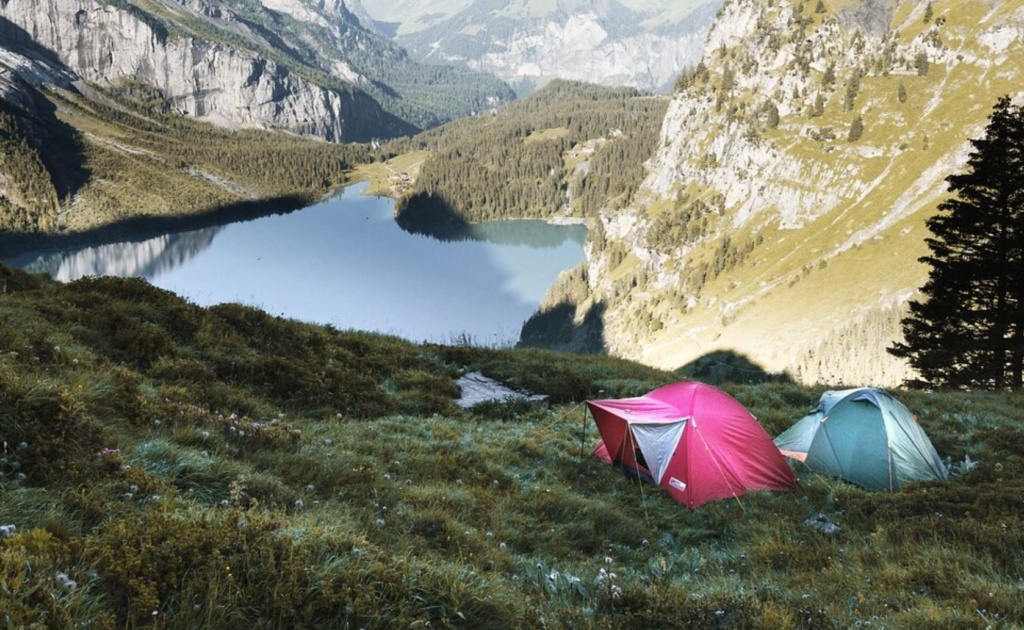
1. Choose the Right Campsite
Selecting the right site to set up your camp is one of the most important steps in ensuring safety. Before deciding where to pitch your tent or park your caravan, make sure the ground is flat and free of potential hazards like falling branches, overflowing rivers, or unstable rocky areas. Also, research whether the site has access to basic services such as potable water, restrooms, and emergency signage.
Avoid flood-prone areas or steep terrain not only for comfort but also for safety. Additionally, it’s crucial to follow the regulations of the camping destination, such as permissible campfire use or restrictions on interacting with wildlife. Following good camping etiquette ensures a safe and enjoyable experience for all.
2. Check the Weather Forecast
Weather can change unexpectedly when you’re outdoors, so keeping an eye on the forecast is key to a safe stay. Before leaving home, check the weather conditions and prepare for possible changes during your trip.
Pack appropriate clothing for different weather scenarios, from rain gear to layers for protection against cold temperatures. In case of thunderstorms, have a plan to seek shelter safely. Anticipating weather changes can prevent many uncomfortable and risky situations.
3. Store Food Safely
One of the most common camping mistakes is not storing food properly. Leaving food exposed can attract wildlife, putting both campers and the local fauna at risk. To avoid this, store food in airtight, waterproof containers, and keep it away from the tent.
If possible, use bear-proof containers or designated food storage areas that many campsites offer. Additionally, separate raw from cooked food and wash your hands regularly to prevent foodborne illnesses. Practicing food safety helps protect both you and the environment.
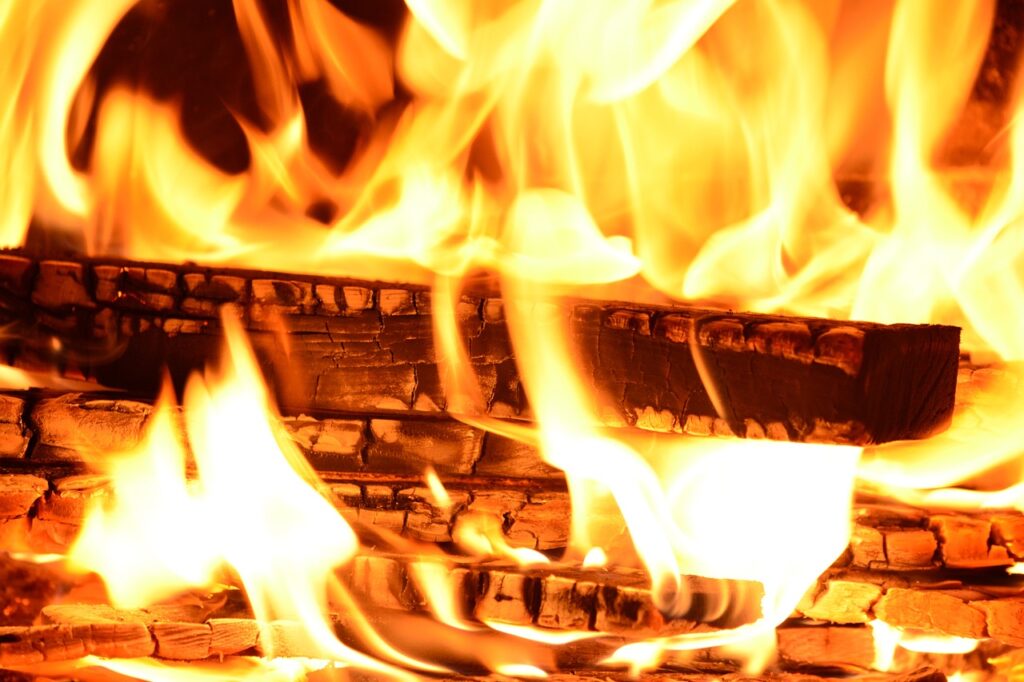
4. Handle Campfires with Care
Campfires are a fundamental part of the camping experience, but they can also be dangerous if not handled carefully. Keep the flames small and always within designated fire rings or pits. Avoid lighting fires near bushes, trees, or flammable structures.
Never leave a campfire unattended. Make sure to extinguish it completely before going to bed or leaving the area by pouring water over the embers until they are completely cold. A small spark can turn into a wildfire if proper campfire safety measures are not taken.
5. Insect Protection
Insects, such as mosquitoes and ticks, can be more than just a nuisance while camping—they can also transmit diseases. Apply insect repellent regularly, especially on exposed areas of your skin, and check your body daily for bites or ticks.
Wear long sleeves and pants to reduce direct contact with insects, especially if you’re hiking on trails or through wooded areas. When returning to your tent or caravan, shake out your clothes thoroughly and place them in the dryer for a few minutes to ensure you don’t bring any unwanted guests along. Insect protection is essential for your well-being outdoors.
6. Bring a First Aid Kit
It’s always better to be prepared for any eventuality. Carry a well-equipped first aid kit that includes essentials like bandages, gauze, antiseptic, tweezers, and medications for common ailments like headaches or allergic reactions.
If someone in your group has known allergies, make sure to bring an EpiPen or other necessary medication. Additionally, check your first aid kit before departure to ensure all items are within their expiration date and in good condition. Being ready for unexpected health issues, including allergies, is part of camping safety.
7. Stay Hydrated
Staying hydrated is essential when you’re outdoors, especially on hot days or during intense physical activities. Don’t wait until you’re thirsty to drink water, as that’s a sign of dehydration. Instead, sip water constantly throughout the day.
Always carry a reusable water bottle with you, and if you’re camping in a location without potable water access, ensure you bring enough water for your entire trip or have purification methods available, such as filters or purification tablets. Proper hydration is key to staying healthy and enjoying your adventure.
8. Protect Your Skin from the Sun
The sun can be relentless, even on cloudy days. Use broad-spectrum sunscreen with an SPF of at least 30, and reapply it every two hours, or more frequently if you’re sweating or have been in the water. Don’t forget to protect your lips with SPF lip balm as well.
Wearing wide-brimmed hats, sunglasses, and lightweight long-sleeved clothing can also help shield your skin from harmful UV rays. Avoid prolonged sun exposure, especially during peak hours (10 a.m. to 4 p.m.), to prevent sunburn and heatstroke. Practicing good skin protection ensures a safer camping experience.
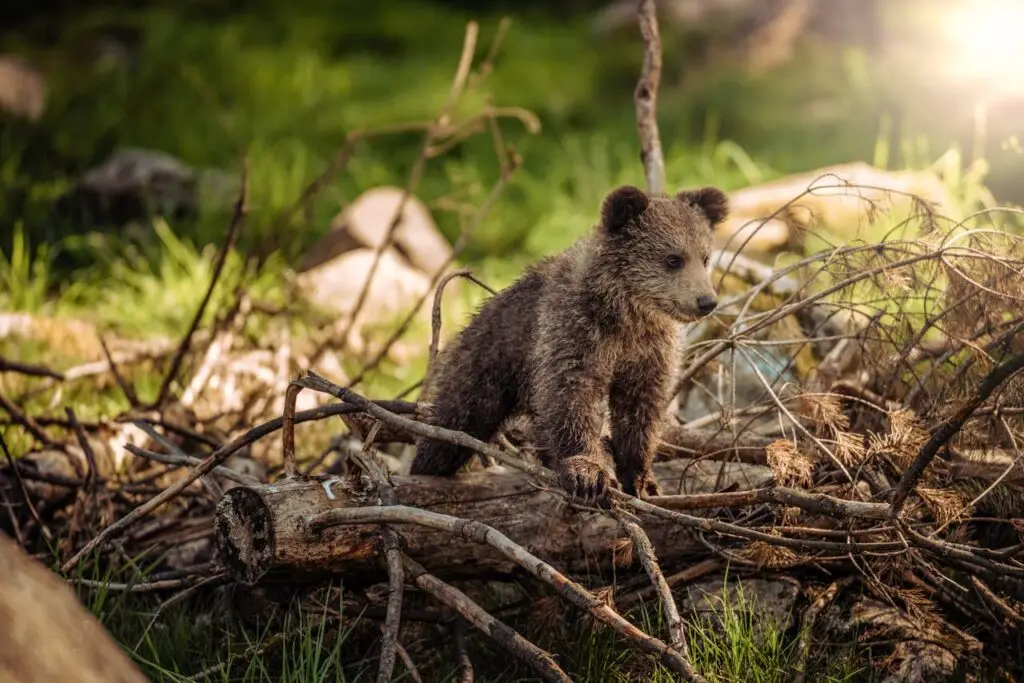
9. Respect Wildlife
Part of the magic of camping is being surrounded by nature, but it’s important to remember that we are visitors in the homes of many animals. Keep a safe distance from local wildlife and avoid any attempts to feed or interact with them.
Make sure to properly store all supplies and leave no traces of food or trash in the camp. This not only protects the animals but also safeguards future campers who may face dangerous encounters with wildlife drawn by leftover food. Following the Leave No Trace Policy and respecting camping etiquette ensures everyone can enjoy nature responsibly.
10. Have an Emergency Plan
Finally, for having a camping safety, an emergency plan can make a significant difference if something goes wrong. Inform a family member or friend about your location and the duration of your campout. Identify escape routes and meeting points in case of an emergency.
Carrying a map of the area, a compass, or GPS can be crucial if you get lost or need to evacuate quickly. Also, ensure you have a reliable form of communication, such as a fully charged mobile phone or a radio, to contact emergency services if necessary. Alertness and planning ahead are essential components of camping safety.
With these tips in mind, you are ready to enjoy your camping adventure safely and with fun in mind! Always prioritize safety to ensure your time outdoors is as enjoyable and worry-free as possible.

